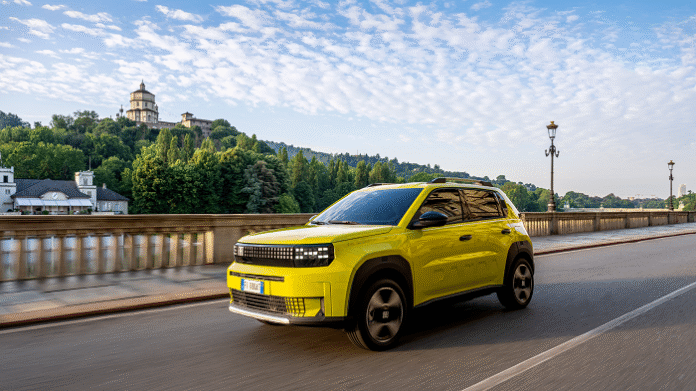Fiat Introduces the First Car Using Recycled Material from Used Beverage Cartons

Image Credits: Fiat
Beverage cartons have initiated a new life as part of a revolutionary expansion for the automotive market. With the introduction of the latest model of Fiat Grande Panda, Fiat has declared itself as the first car producer to integrate recycled resources from used beverage cartons in a vehicle. Each Fiat Grande Panda comprises recycled resources from the thin layers of aluminium and polyethylene utilized in 140 beverage containers. These recycled resources are utilized in the plastics of the car’s interior. Precisely, it is utilized in the rear door panels, central console, dashboard, and interior front. PolyAl is an amalgamation of aluminium and polymer apparatuses improved through the recycling of beverage cartons.
Beverage cartons are manufactured of, on average, 5% aluminium, 25% polymers, and 70% paperboard. This mixture of resources is significant to aseptic packaging, where excessively thin layers of polymers and aluminium protect the food or beverage within, extending the good’s shelf life without the requirement for stabilizers or freezing.
While the paperboard from beverage containers can be altered into valued paper-based customer goods such as toilet paper, tablecloths, and napkins, Tetra Pak has been discovering and increasing commercial usage for the outstanding polyAl in partnership with multiple manufacturers and recyclers.
The Fiat Grande Panda mechanisms are generated by a polyAl-based component called Lapolen Ecotek, which is produced by Lapo Compound. The firm worked with Fiat to ensure that these resources were competitive in charges and quality. The placement of the resources in such observable parts of the inside, rather than in unseen areas, evidently validates the material’s appealing potential. Fiat selected the resources for its sparkling effect, generated by the aluminium contented of the recycled resources, and because Lapo Compound was capable of exactly matching the precise shade of blue needed.
The change to integrate resources from recycled beverage cartons bring into line with Fiat’s task to generate more affordable and sustainable cars with its “less is more” method, eliminating out-of-work parts and decreasing polluting resources such as leather and chrome.
Fiat’s usage of the polyAl resources in the Fiat Grande Panda showcases that these recycled resources can now be used on a huge scale by the automotive market. The car is now on the market in most European countries, and will be accessible outside Europe by the end of the year.
This partnership with Lapo Compound puts Fiat well on track to gain from the EU Commission’s End-of-Life Vehicles Proposal, which sets a goal of 25% of plastic utilized in vehicles coming from recycled resources. Lapo Compound’s solution supports the market in achieving this aim by offering recycled resources that fulfil its firm quality ideals while preserving reliability.
Giuseppe Crisci, General Manager at Lapo Compound, expressed, “We believe in creating products that not only meet strict quality standards but also help contribute to a circular economy by keeping valuable materials in use. Our product innovation has successfully met this technical challenge for Fiat, which is testament to our dedication to sustainable innovation that supports a journey toward a more circular, responsible future.”
Top Stories
- A Simple Guide to Understanding Benefits of Rigid Boxes
- A Packaging Guide for Artisanal and Handmade Product Brand
- UFLEX Expands PET Recyclable Woven Polypropylene Food Packaging to Mexico
- Tetra Pak Launches India’s First Carton Packaging with Certified Recycled Polymers
- PepsiCo Reinforces pep+ Strategy with Sustainable Packaging Goals
